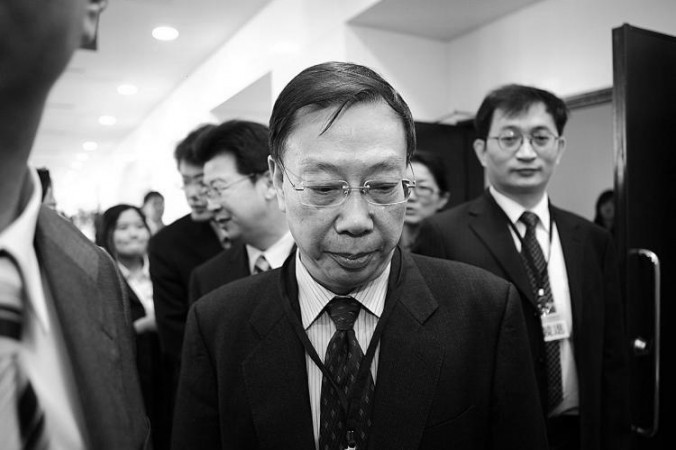Transplant doctors clash over Chinese organ donor system
by Xavier Symons | 20 Aug 2016 |

Criticism of alleged forced organ harvesting in China reached fever pitch this week as the 26th International Congress of The Transplantation Society convened for the first time on Chinese soil.
The Congress, which opened in Hong Kong on Wednesday, features a number of presentations from Chinese researchers, including former Vice-Minister for Health Huang Jiefu, and marks the end of a longstanding Transplantation Society (TTS) embargo on research from China.
Despite claims from Chinese officials that organs will no longer be harvested from executed prisoners, experts from around the world have slammed TTS for this year’s Congress, saying it implies implicit endorsement of current and past organ harvesting practices in China.
In an article published on Wednesday in the American Journal of Transplantation, a day before the Congress opened in Hong Kong, doctors and members of a non-governmental medical organization questioned the “veracity of the announced changes”:
“It is noticeable that China has neither addressed nor included in the reform a pledge to end the procurement of organs from prisoners of conscience, nor have they initiated any legislative amendments...Until we have independent and objective evidence of a complete cessation of unethical organ procurement from prisoners, the medical community has a professional responsibility to maintain the academic embargo on Chinese transplant professionals.”Current TTS president Philip O’Connell and past president Jeremy Chapman, both Australian doctors based in Sydney, have been heavily criticised for ongoing collaboration with researchers from Chinese hospitals.
Despite having expressed grave concerns about China’s practices as late as December 2013, Jeremy Chapman told the Sydney Morning Herald earlier this year that he believes China has ended the use of organs from executed prisoners.
- See more at: http://www.bioedge.org/bioethics/more-criticism-of-chinese-organ-harvesting/11969#sthash.PFe3XuKn.dpuf

Costa Rica is a small Central American republic of about 4.5 million people which is remarkably stable, compared to other countries in the region. It is one of the few countries in the world without a standing army. Its democratic institutions are robust. A higher proportion of people turn out to vote than in the US. The percentage of seats in parliament held by women is nearly double that of the US – about one-third.
Yet Costa Rica has been dragooned by an international court into enacting legislation which violates its Constitution. In 2000 it became the only country in the world to ban IVF, based on a Supreme Court ruling that this violated a constitutional guarantee to the right to life for the unborn. Last year, after many legal battles, Costa Rica was ordered by the Inter-American Court of Human Rights to enact legislation enabling IVF -- against the will of its legislature and Supreme Court. “Seven foreigners are making decisions about human life in Costa Rica,” said one deputy bitterly. After more legal tussles, clinics began offering IVF procedures last month.
Regardless of where one stands on the ethics of IVF, this seems like a low point for respect for democracy. An article in Nature crowed over the victory and said that the next goal must be the legalization of abortion. There’s something quite cynical about this. If the Inter-American Court of Human Rights struck down the death penalty in the US, all Americans would be united in their outrage. Voters in the UK supported Brexit because EU courts were suborning UK legislation, amongst other issues. Yet no one is defending Costa Rica’s right to make up its own mind on controversial bioethical problems.
This is The Mouse That Roared with an unhappy ending.

Michael Cook
Editor
BioEdge
| This week in BioEdge | |
by Xavier Symons | Aug 20, 2016
Criticism reached fever pitch as the 26th International Congress of The Transplantation Society convened on Chinese soil.by Xavier Symons | Aug 20, 2016
Editor of Bioethics says the baby boomer generation are pushing euthanasia.by Michael Cook | Aug 20, 2016
Rising cost of burials could be responsibleby Michael Cook | Aug 20, 2016
Leading medical journal refuses to back down from controversial articleby Xavier Symons | Aug 20, 2016
Desperate couples are turning to surrogacy agencies in Cambodia.by Michael Cook | Aug 20, 2016
Three women tel the BBC of the sorrow of separationby Xavier Symons | Aug 20, 2016
A Harvard academic’s new book on the ethics of technology asks important questions about the regulation of new developments in science and research.by Michael Cook | Aug 18, 2016
The major protagonists in the campaign for legalisation explain their viewsBioEdge
Suite 12A, Level 2 | 5 George St | North Strathfield NSW 2137 | Australia
Phone: +61 2 8005 8605
Mobile: 0422-691-615
Email: michael@bioedge.org
New Media Foundation | Level 2, 5 George St | North Strathfield NSW 2137 | AUSTRALIA | +61 2 8005 8605





















.png)









No hay comentarios:
Publicar un comentario